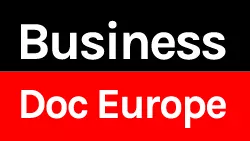
First came Pictures From Afghanistan, the acclaimed 2019 documentary in which veteran Scottish photojournalist David Pratt returned to Iraq where he worked on assignment in the 1980s and 1990s. He had been there during the period of first the mujahideen and then the rise of the Taliban, a time of continuing violent turbulence, but Pratt fell in love with the country and was keen to go back.
Now, as a world premiere at the Glasgow Film Festival, follows Pictures From Iraq. Again directed and produced by Robbie Fraser and made through Fraser’s Glasgow-based Dulcimer Films, the new film sees Pratt revisiting another country where he witnessed war and mayhem but for which he also has a deep-rooted affection.
The same funders who supported Pictures From Afghanistan, among them BBC Scotland and Screen Scotland, backed Pratt and Fraser to make the Iraq project. French company Terranoa and BBC Persia are among the other supporters of the film.
Ambitiously, the filmmakers decided to shoot the Iraq film and another documentary set in the Balkans (where Pratt had also been on assignment many times) one after the other in September and October last year.
“I am really glad we did, partly because of Covid reasons. Going out to these places was exciting but it was a real culture shock I think for David as much for me. Obviously, like everyone else, we had been under a lockdown,” Fraser remembers of embarking on an epic journey abroad after months of lockdowns and Covid restrictions in the UK.
The filmmakers had managed to “get all our risk assessments and Covid protocols into shape.” They realised that if they came back to the UK, even if only for a few weeks, they might not be allowed to leave again. “If one of us got a Covid ping, the whole thing could be disrupted.” The best idea, therefore, was to take a four week road trip in which they would visit both Iraq and the Balkans. “So that’s what we did.”
Pictures from Iraq contains distressing footage and photographs of the country during the 2003 invasion and during the Isis occupation.
“This is a troubled, tortured, tangled country which has been at war of one kind or another since 1979,” Pratt says in the film’s opening voice over. He details the ethnic, tribal and religious divisions within the country as well as the suffering Iraq endured under its “genocidal” dictator Saddam Hussein. He talks equally passionately, though, about the country’s immense beauty and the kindness and hospitality of its people.
“I have to say that David’s affection for the Middle East and for everywhere that he visits, it does rub off,” Fraser says. The crew members were welcomed in Iraq in a way which reminded the producer-director, who grew up in the Highlands, of traditional Scottish hospitality. “In Iraq, it is like that times ten.” Cafe owners would feed the filmmakers free of charge while customers would give up their seats to the foreign visitors. Everyone would fuss over them.
They were also helped by their Iraqi collaborators, among them the ‘brilliant’ Iraqi-Kurdish cameraman, Bryar Bakhtar, and their endlessly resourceful local fixer, the Iraqi Kurdish journalist, Sangar Khaleel.
“He (Khaleel) loves his country. He is so proud of it. He knows all the dangers, both physical and editorial, and he just helps you get the best out of your trip,” Fraser notes.
The documentary features new footage of figures like Sirwan Barzani, a celebrated Kurdish soldier and nephew of Massed Barzani (the leading Iraqi-Kurdish politician) as well as of Kurdish female fighters. These are far more relaxed encounters than would be found in conventional western news reports.
“It’s not David giving somebody the third degree about their organisation or history…we do talk about politics and international affairs but it is all done through this personal lens.”
Both Fraser and Pratt are fans of Parts Unknown, the series hosted by the late chef and writer, Anthony Bourdain, who would visit far-flung countries, exploring their cultures, cuisines and politics in a way that was always both insightful and sensitive. “We watched a lot of that and thought how can we take the wonderful energy that show has got and try to reflect that.”
Now, following Bourdain’s example, Fraser and Pratt hope to make further films. Pratt’s work didn’t just take him to Afghanistan, Iraq and the Balkans but to Somalia, Libya, Haiti, Congo, Israel and Palestine.
“One of the great things about David is that, over the course of his 40 year career as an independent photographer and writer, he developed quite an extraordinary archive of stills and a large amount of DV video,” Fraser observes of the treasure trove of Pratt’s material they can draw on.
Fraser’s Dulcimer Films (which he set up in 2019) has several other projects in development. Among these is a documentary about the Barlinnie Special Unit, to be directed by Irvine Allan, whose short film Daddy’s Girl won a prize at the 2001 Cannes Festival. This was the facility at the Glasgow prison established to rehabilitate the most violent prisoners through the arts. (The filmmakers have been given access to videos shot inside the special unit and which have never been shown in public before).
Broadcaster Alan Little will chair a Q&A following the March 13 world premiere of Pictures From Iraq. The film is expected to be broadcast by BBC Scotland later in the year.
Following the Glasgow screening, Fraser will begin editing Pictures From The Balkans which he hopes to have ready by the summer. He is also executive producer on another film premiering in Glasgow this month, Lizzie MacKenzie’s The Hermit Of Treig. “That was a real pleasure, just to work on a project with a bit more distance and to provide my best advice,” he says of his involvement in that film.










